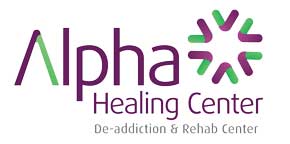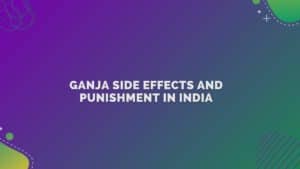Having to select a de-addiction or rehabilitation center is one of the more puzzling decisions that one would have to make. This is because unlike for other decisions where one can rely on the experiences of near and dear ones, very few people would be able to narrate their experience of going through rehab. Nevertheless, the fact that you might have recognized the need to undergo rehab is in itself, a small victory over your addiction. Here are a few things you may want to keep in mind before you choose a de-addiction center to register with:
- Ascertain your treatment needs
Before you decide to choose which rehab center to go for, you need to understand the type of therapy you require. You can decide this by having a discussion with your family physician or a professional psychotherapist.
- Physical Changes
People who are into drug abuse may exhibit changes in their bodies such as losing or gain suddenly, extreme laziness or hyperactivity, bloodshot eyes, nasal congestion or bleeding, fainting, a feeling of weakness, and lack of balance, and so on. If you are witnessing a person who you are close to experiencing such drastic physical changes without voluntarily making alterations to their diet and workout regime, there is a possibility that he or she might be suffering from drug abuse.
- Check whether the staff administering the therapy is qualified
The success of your rehabilitation therapy will depend on how qualified the therapists at the center are. Because the process of helping someone overcome addiction has several complex nuances and has as such, therapy has to be administered on a near-personalized basis.
- Ensure that the center is legally operating
This is a point that is especially valid in India, where thanks to a growing incidence of drug abuse, a plethora of illegal deaddiction centers have been cropping up. Therefore, you need to ensure that the center you are planning to enroll with is legally operating. The Government of India has prescribed the following personnel requirements for a rehab center:
1. A trained and certified psychiatrist
2. A mental health counselor
3. Trained staff to administer prescribed medications to patients
4. Choice of treatment options
As mentioned in the above point, overcoming addiction is a complex process, and as a result, you might require to undergo different types of therapy. Therefore, it makes a lot of sense to choose such centers where a variety of treatment methods are practiced, such as cognitive behavior therapy, family therapy, and community-reinforcement approach.
- Having a preliminary discussion with the primary care therapist
Before you enroll with a de-addiction center, it is essential that you meet with the therapist to understand the kind of treatment plan that he believes would be effective for you. This way, you get an idea of whether your therapy needs would be met or if there is a modification required. Accordingly, you may make a choice between different centers depending on which therapist presents the best rehab plan for you.
- Availability of Aftercare
After successfully undergoing deaddiction therapy, one needs to ensure that there is no relapse of addiction and that the new habits that you pick up during the rehab stick with you long enough. You might also require help in dealing with withdrawal symptoms such as drug cravings that may crop up from time to time. As a result, you need to ensure that the aftercare facility is available at the center that you plan to enroll with.
- Recovery rate
How effective the therapy administered at the rehabilitation center is of primary importance. Before you pick where to enroll with, make sure you check what percentage of people have successfully overcome their addiction after undergoing rehab.
- Availability of Aftercare
After successfully undergoing deaddiction therapy, one needs to ensure that there is no relapse of addiction and that the new habits that you pick up during the rehab stick with you long enough. You might also require help in dealing with withdrawal symptoms such as drug cravings that may crop up from time to time. As a result, you need to ensure that the aftercare facility is available at the center that you plan to enroll with.
- Patient Reviews
As mentioned above, one cannot rely on family and friends to help in making a choice of a de-addiction center, because most people would not have personally experienced the services of one. And therefore, it is necessary to depend on others’ reviews for the same. Make sure you go through enough of genuine reviews to understand how the patients’ experiences at the center have been before you decide to enroll.
Making the right choice of the de-addiction center is the key to successfully overcoming your addiction problem. In case you require to undergo deaddiction therapy, the above-mentioned pointers would help you in choosing the right center to go for.






